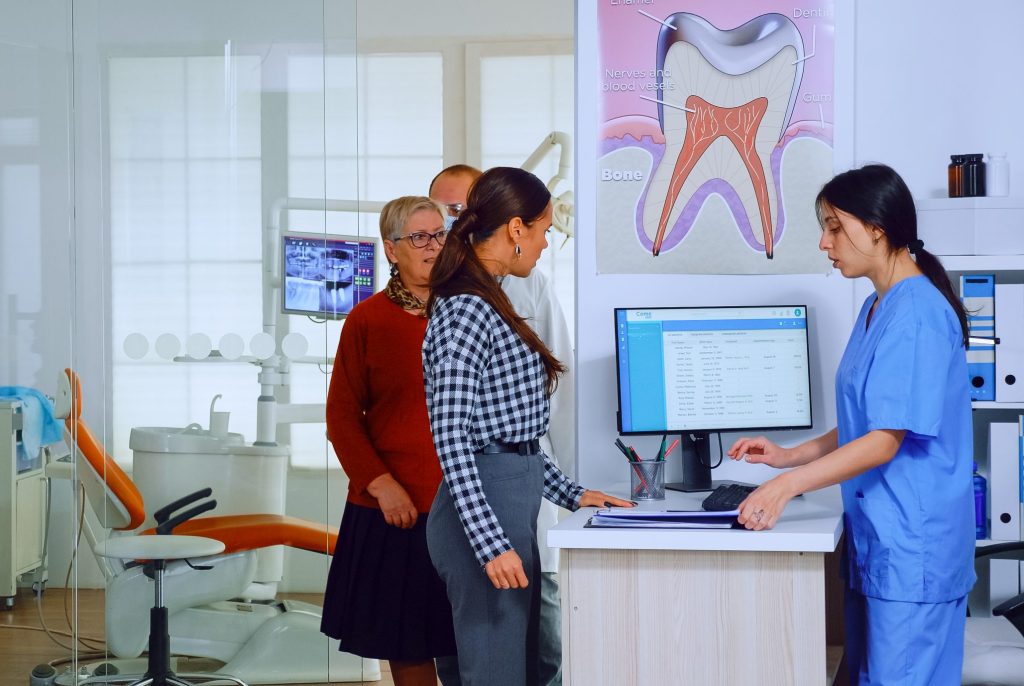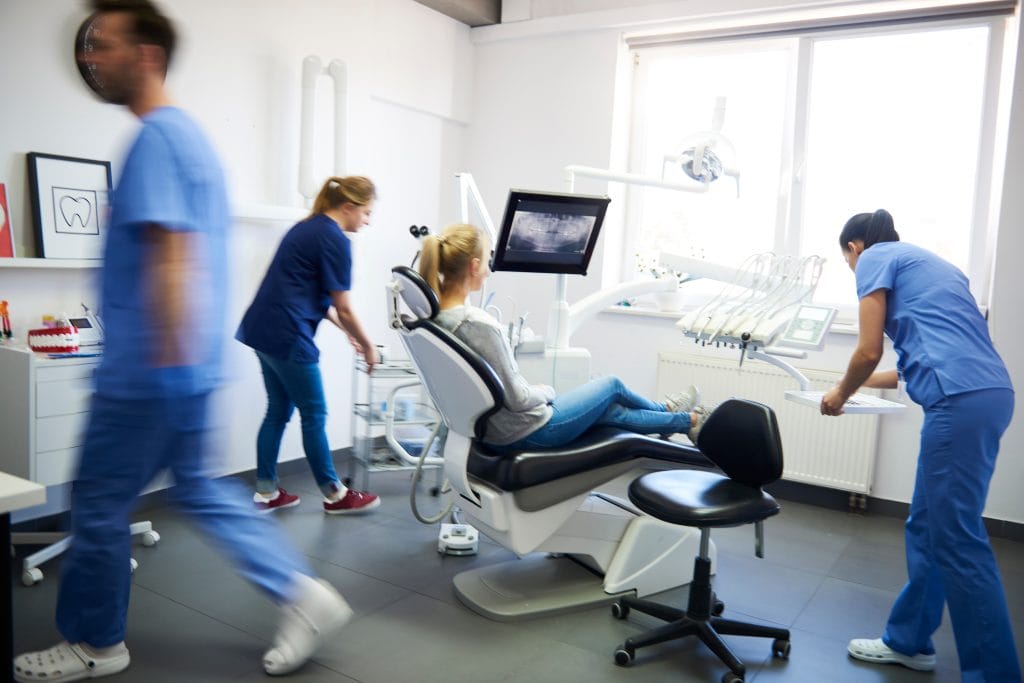We are honored to present this guest post written by employment attorney, Devora Lindeman of Greenwald Doherty, LLP. In addition to our usual practice management tips, we like to keep our clients up to date on important issues that may affect their practice. We hope you enjoy! – The Editors.
We believe it has a lot of useful information that can help you navigate certain situations regarding Covid-19. – The Editors
The U.S. federal Families First Coronavirus Response Act (“FFCRA”) enacted in April 2020, requires employers to provide certain paid leave to employees:
- when they need leave for certain COVID-19 reasons related to their own health condition;
- when they need to take care of an individual who is quarantining due to COVID-19; or
- when they need to care for children whose school or daycare or usual care provider is unavailable due to COVID-19 related reasons.
The law allows employers to deny this leave to employees who are “health care providers.” However, the law does not define what employees could be exclude. Instead, it permits the federal Department of Labor (“DOL”) to issue regulations that explain how the law is to be applied. After the law was enacted, the DOL issued regulations defining “health care provider.” The initial definition was very broad, and included any employee of a doctor’s office, hospital or clinic. It swept into the definition both medical professionals as well as back-lines (or front-desk) employees who were not providing any medical care, advice, testing or treatment to patients. Those excluded employees merely had to be medical practice employees.
Based on that initial definition, as you may have heard, dentists were permitted to exclude all of their employees from the coverage of the FFCRA and could deny their employees any FFCRA leave.
This has now changed.
For various reasons that will not be discussed here, the DOL has now modified the definition of “health care provider” and narrowed the scope of employees who may be denied leave under the FFCRA. Specifically, the revised Department of Labor definition includes only the following as “healthcare providers” who can be denied FFCRA leave:
- anyone who is a licensed doctor of medicine, nurse practitioner, or other health care provider who can provide a diagnosis to a patient; or
- “any other person who is employed to provide diagnostic services, preventive services, treatment services, or other services that are integrated with and necessary to the provision of patient care and, if not provided, would adversely impact patient care. This group includes employees who provide direct diagnostic, preventive, treatment, or other patient care services, such as nurses, nurse assistants, and medical technicians. It also includes employees who directly assist or are supervised by a direct provider of diagnostic, preventive, treatment, or other patient care services. Finally, [it also includes] employees who do not provide direct heath care services to a patient but are otherwise integrated into and necessary to the provision those services—for example, a laboratory technician who processes medical test results to aid in the diagnosis and treatment of a health condition [ ].”
Thus, dentists should be mindful that employees who provide no patient treatment or care, or who otherwise provide none of the services listed above, would be eligible for FFCRA leave should they be unable to work or telework for a COVID-19-related reason covered by the Act, as described below.
(Related: When Employees Refuse to Return to Work Due to Covid-19)
The FFCRA allows eligible employees to take two types of leave: (1) Emergency Paid Sick Leave and (2) Extended FMLA (Family and Medical Leave Act) Leave.
Emergency Paid Sick Leave provides for up to two weeks (80 hours) of paid leave if the employee is unable to work (or telework) and needs leave because:
(1) The employee is subject to a quarantine or isolation order related to COVID-19, or has been advised by a health care provider to self-quarantine;
(2) The employee is experiencing symptoms of COVID-19 and seeking a medical diagnosis;
(3) The employee is caring for an individual (any individual) subject to a quarantine or isolation order related to COVID-19, or who has been advised by a health care provider to self-quarantine;
(4) The employee is caring for a son or daughter if the child’s school or place of care has been closed, or the child’s child care provider is unavailable, due to COVID-19 precautions.
The “two weeks” is whatever amount of time the employee would ordinarily work in a two-week period.
Leave for reasons related to the employee’s own health condition (reasons (1) and (2) above) are taken at full pay (up to $511 a day). Leave for reasons relating to care for another (reasons (3) and (4) above) are taken at 2/3 pay (up to $200 a day).
Extended FMLA (Family and Medical Leave Act) Leave provides for up to 12 weeks of leave only to care for a son or daughter if the child’s school or place of care has been closed, or the child’s child care provider is unavailable, due to COVID-19 precautions. The first two weeks of this leave are unpaid (unless the employee has not used any or all of their two-weeks of Emergency Paid Sick Leave). The subsequent 10 weeks are paid at 2/3 pay (again, up to $200 a day).
A dental practice can get a dollar-for-dollar tax credit or reimbursement for the money spent providing FFCRA leave to employees who are eligible for this leave, provided certain documentation regarding the employee’s need for leave is obtained. Either the practice takes a credit against the next quarter’s federal employee tax payment (by literally not paying and keeping the amount of money paid out in FFCRA benefits; the credit is against both employee and employer share of FICA/Medicare taxes and federal employee withholding taxes) or if the amount paid out is greater than the tax liability for that quarter, applying to the IRS for a repayment check for the difference. Dentists would be prudent to speak with their accountants or tax advisors for more information.
For now, the FFCRA is currently set to expire, and with it these obligations, December 31, 2020.
The foregoing is a summary of the laws discussed above for the purpose of providing a general overview of these laws. These materials are not meant, nor should they be construed, to provide information that is specific to any law(s). You should be aware that these laws are changing rapidly. The above is not legal advice and you should consult with counsel concerning the applicability of any law to your particular company or situation. © MMXX Greenwald Doherty LLP All rights reserved. May not be reprinted without permission.
Devora Lindeman has many years of experience in management-side labor and employment law. Her practice is focused on advising both for-profit and non-profit clients on day-to-day employment challenges that arise when businesses have employees, such as discrimination and harassment complaints, accommodations to individuals with disabilities or who are pregnant, compliance with employee leave laws, wage and hour issues, and issues related to recruiting and hiring, performance management and discipline, terminations and layoffs. Ms. Lindeman reviews and drafts employee policies and handbooks, and assists employers to implement various employment agreements, including confidentiality agreements and agreements not to compete, as well as appropriate agreements with independent contractors. Her proactive, preventive maintenance approach enables employers to avoid litigation whenever possible, and to ensure that essential defenses are in place should employee claims be asserted. When needed, Ms. Lindeman represents business clients in employment related litigation in federal and state court, before government agencies and in mediations and arbitrations.
Ms. Lindeman was previously employed as an Associate in the Labor & Employment Department of Proskauer Rose LLP (1999-2007), and as a Labor & Employment Associate with Grotta, Glassman & Hoffman, P.C. (1996-1999). She also served as a Judicial Clerk to the Hon. Stanley R. Chesler, U.S. Magistrate Judge, D.N.J. (1995-1996).
Ms. Lindeman publishes and lectures widely on the legal aspects of human resource issues, and provides compliance and management training for businesses and professional organizations.
Focus: Employment Law, HR Compliance and Consulting, Employment Litigation, Employment Contracts, Discrimination and Harassment, Wage and Hour Compliance, Management Training
Education: J.D., Rutgers University School of Law, Newark (1995), highest honors, Rutgers Law Review, Order of the Coif, Order of the Barrister; B.A., Sarah Lawrence College (1992)
Admissions: New York, New Jersey; U.S. District Courts for the Southern District of New York, Eastern District of New York, and District of New Jersey.




No Comments
Be the first to start a conversation